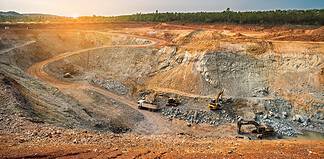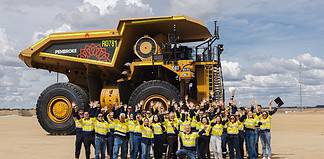AUSTRALIA’s Construction, Forestry, Mining and Energy Union (CFMEU) is demanding that the benefits of the mining boom be shared more equally, with the launch of a new advertising campaign.
The union is calling for more jobs to be delivered to Australians, along with increased investment in mining communities and better management of the impact on various job sectors.
“The mining boom has created opportunities for many Australians, but it has left many more behind, badly hurting job-rich sectors such as manufacturing, tourism and education,” CFMEU construction and general division secretary for Queensland Michael Ravbar said.
“While thousands of Queenslanders are losing their jobs, and unemployment has leapt to 6.2 per cent, big mining companies want to bring in temporary foreign workers to build and operate mines. It defies common
sense.”
CFMEU secretary for WA Mick Buchan said the same was also true for his state, where unemployment had crept up to 4.3 per cent.
“Youth unemployment continues to be a major issue while big mining companies use claims of a skills shortage to bring in temporary foreign workers for the mines,” he said.
According to the CFMEU, mining company profits are set to remain high for the next 20 years.
“The boom itself has also led to a historically high Australian dollar, which is hurting other industries,” the CFMEU stated.
“The high dollar makes our exports expensive and creates an incentive to import cheap and often inferior products.”
The manufacturing industry has fallen under immense pressure; last year, 52,000 workers lost their jobs.
In order to protect Australians, the CFMEU is asking the Federal Government to suspend the use of 457 visas across various industries, and the issuing of Enterprise Migration Agreements (EMAs).
The first EMA was granted in May last year to Gina Rinehart for the Roy Hill project in WA, allowing the magnate to employ up to 1715 foreign workers if Hancock Prospecting could not secure a local workforce.
However, the company recently made public that following an ease on skills shortages, it expected enough skilled workers would be available for the project’s construction within Australia.
Call for Australian workers to be given fairer go
Advertisement







































